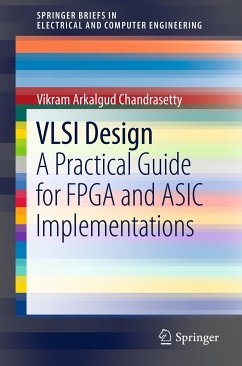
ESL Models and their Application (eBook, PDF)
Electronic System Level Design and Verification in Practice
Versandkostenfrei!
Sofort per Download lieferbar
72,95 €
inkl. MwSt.
Weitere Ausgaben:

PAYBACK Punkte
36 °P sammeln!
This book arises from experience the authors have gained from years of work as industry practitioners in the field of Electronic System Level design (ESL). At the heart of all things related to Electronic Design Automation (EDA), the core issue is one of models: what are the models used for, what should the models contain, and how should they be written and distributed. Issues such as interoperability and tool transportability become central factors that may decide which ones are successful and those that cannot get sufficient traction in the industry to survive.Through a set of real examples ...
This book arises from experience the authors have gained from years of work as industry practitioners in the field of Electronic System Level design (ESL). At the heart of all things related to Electronic Design Automation (EDA), the core issue is one of models: what are the models used for, what should the models contain, and how should they be written and distributed. Issues such as interoperability and tool transportability become central factors that may decide which ones are successful and those that cannot get sufficient traction in the industry to survive.
Through a set of real examples taken from recent industry experience, this book will distill the state of the art in terms of System-Level Design models and provide practical guidance to readers that can be put into use. This book is an invaluable tool that will aid readers in their own designs, reduce risk in development projects, expand the scope of design projects, and improve developmental processes and project planning.
Through a set of real examples taken from recent industry experience, this book will distill the state of the art in terms of System-Level Design models and provide practical guidance to readers that can be put into use. This book is an invaluable tool that will aid readers in their own designs, reduce risk in development projects, expand the scope of design projects, and improve developmental processes and project planning.
Dieser Download kann aus rechtlichen Gründen nur mit Rechnungsadresse in A, B, BG, CY, CZ, D, DK, EW, E, FIN, F, GR, HR, H, IRL, I, LT, L, LR, M, NL, PL, P, R, S, SLO, SK ausgeliefert werden.













